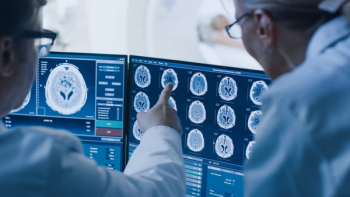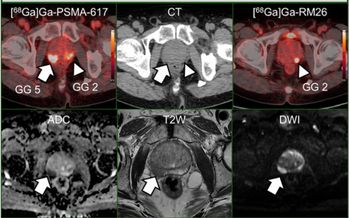
FDA clears Siemens PET/CT, considers IND
Other headlines:RadNet 1Q revs up, losses narrow
FDA clears Siemens PET/CT, considers IND
The way is clear for Siemens Healthcare to market in the U.S. its latest TruePoint 16-slice PET/CT scanner. The Biograph TruePoint 16, recently cleared by the FDA, can perform 10-minute whole-body positron imaging at 2-mm resolution. It can be upgraded with Siemens' extended PET TrueV field-of-view technology, which offers clinicians the option to cut either scan time or radiopharmaceutical dose in half.
In a development related to PET radiopharmaceuticals, Siemens has filed with the agency an exploratory Investigational New Drug application for an agent to diagnose Alzheimer's disease. This PET tracer, the latest result of Siemens' PET biomarker research program, selectively attaches to amyloid plaques, potentially identifying an early sign of this type of dementia.
RadNet 1Q revs up, losses narrow
Revenues from RadNet's 167 imaging centers grew 12.4% to $128 million in the first quarter of this year over 1Q 08, cutting the company's net loss from $5.5 million in the year-earlier period to $842,000. The addition of new centers helped grow revenues through a hefty 9.3% rise in volume over the previous year's period. When considering only the centers that were part of RadNet in the first quarters of 2008 and 2009, however, overall volume increased just 2.8%. Leading the way in these same-center results was MR with a 5.7% volume increase. CT volume grew 5.6%; PET/CT rose 1%.
Newsletter
Stay at the forefront of radiology with the Diagnostic Imaging newsletter, delivering the latest news, clinical insights, and imaging advancements for today’s radiologists.













